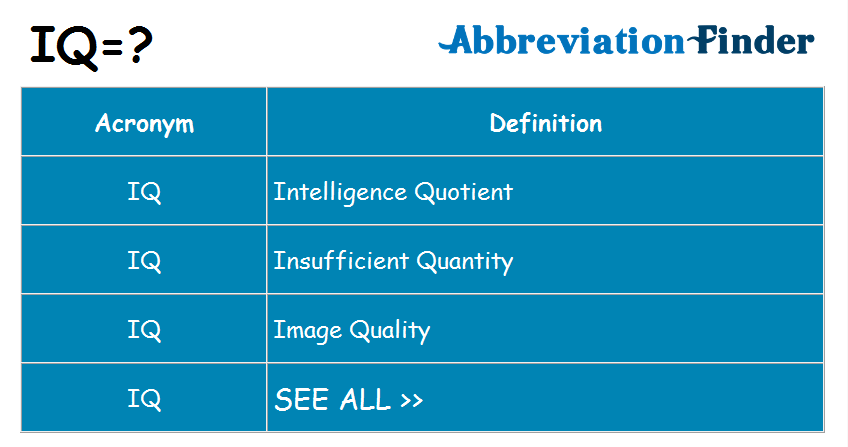What is IQ?
IQ stands for Intelligence Quotient, a factor that measures people’s intelligence based on the results of specific tests. IQ measures the cognitive performance of an individual by comparing people of the same age group.

The first test to measure intellectual capacity was developed in the early twentieth century by the French psychologist Alfred Binet (1859-1911). Initially, the test was applied only in schools to identify students with learning disabilities.
Later, the German psychologist William Stern (1871-1938) created the term Intelligence Quotient, introducing the terms “IM (Mental Age)” and “IC (Chronological Age)” to relate a person’s intellectual capacity and his or her age.
Intelligence scales were proposed by psychologist Lewis Madison Terman (1877-1956), based on several works on gifted children. Through the formula IQ = 100 x IM / IC, he classified the result superior to 140 as genius and values lower than 70 as slow reasoning.
Based on new studies, David Wechsler (1896-1981) created a test developed exclusively for adults, defining the Wechsler Adult Intelligence Scale (WAIS ), which has already undergone revisions.
Intelligence levels are ranked based on the test result, according to the scale:
Equal or superior to 130: Gifted
120 – 129: Superior intelligence
110 – 119: Intelligence above average
90 – 109: Medium intelligence
80 – 89: Weak normal
70 – 79: Disability limit
Equal or less than 69: Mentally deficient
